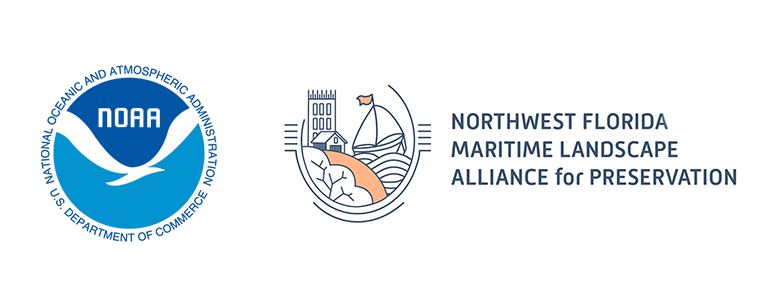Projects
People of the Apalachicola
The Apalachicola National Estuarine Research Reserve (NERR) encompasses an area of the Apalachicola River, Apalachicola Bay, and surrounding lands that is immensely diverse in terms of both natural and cultural resources. The system sustains 24 Florida Natural Areas Inventory natural communities with detailed counts of wildlife species. Over 12,000 years of human history are also embedded along the Apalachicola system, from Indigenous communities that historically inhabited the area, including the Apalachee, Creek, and Seminole Tribes, to enslaved or emancipated people of color, as well as descendants of these people. In addition, industrial dependance on natural resource exploitation for lumber and fishing beginning in the 19th century had a tremendous impact on the system. Despite the depth of time represented in the area’s archaeological record, archaeological resources remain relatively under-documented: many groups are inadequately represented in documented cultural heritage sites and still others are only briefly described in terms of the area’s broader socio-ecological history and future.
Through the integration of digital modeling, heritage sites recording, and community engagement in and around the reserve, this research project seeks to identify ecosystem services that people, past and present, use and value in the Apalachicola system. In-person “Community Conversations on Heritage at Risk” workshops and complementary online surveys will provide the means for gathering local input, drawing from community groups like the North Florida African American Corridor Project, the Hillside Coalition of Laborers for Apalachicola, and the Apalachicola Area Historical Society. The team aims to provide a more representative interpretation of local heritage; inform management decision-making for both heritage and environmental resources impacted by climate and human pressures; and guide future research into impacts and issues these resources may be facing. By recording heritage resources and engaging with community groups through the project, Reserve staff and program partners can more effectively and inclusively interpret human history within and around the Reserve, bolster ties with communities, and enhance educational and interpretive programs.
Upcoming Events:
Friday, May 3, 2024
Estuaries Day
1:30-5:30pm ET
Apalachicola National Estuarine Research Reserve, 108 Island Drive (State Road 300), Eastpoint, FL
More Information
Mark your calendars for Friday, May 3, from 1:30-5:30pm as the Apalachicola National Estuarine Research Reserve (ANERR) celebrates National Estuaries Day! This free, fun and educational event features stations for kids and adults like the marine animal touch tanks, kid friendly nature-themed games and more. Attendees can also tour ANERR’s 5,400 square-foot Nature Center, an 80-foot-long mural depicting the area ecosystems, historical exhibits, and a hands-on Bay Discovery Room.
Florida Public Archaeology Network staff will be on hand to share more about their research and to showcase local archaeology for those of all ages!
Project E-mail List:
To stay up-to-date on community events and the outcomes of the “People of the Apalachicola” project, sign-up for our project e-mail list!


This work is sponsored by the National Estuarine Research Reserve System Science Collaborative, which supports collaborative research that addresses coastal management problems important to the reserves. The Science Collaborative is funded by the National Oceanic and Atmospheric Administration and managed by the University of Michigan Water Center (NA19NOS4190058).